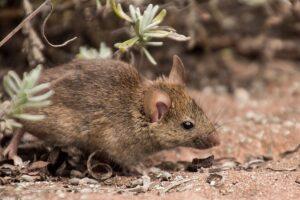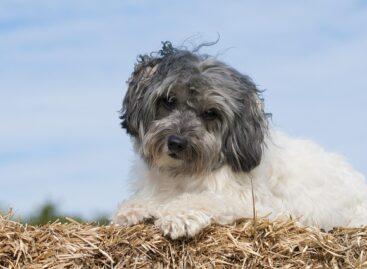Farmers receive help in the fight against the vole invasion
In addition to the autumn rainy weather, Nébih’s latest decision can also help protect against field voles, which are proliferating in an increasingly large area of the country.

(Photo: Pixabay)
The authority – at the request of the National Chamber of Agriculture – has increased the quantity of licensed preparations used to protect against field warts. The vole invasion seems to be slowing down, and in the coming weeks the number of field voles, which are causing increasing damage to domestic farmlands, may decrease significantly. As previously reported by the National Chamber of Agricultural Economy (NAK), field voles have increased significantly, especially in the southern part of the country, and the rodents have caused serious damage to farmers. Although many feared the nationwide invasion experienced in 2014, this year hopefully the rodents’ nationwide devastation will be avoided. The rainy weather helps to protect against field warts, because a lot of precipitation reduces the population, and at the request of the chamber, the National Food Chain Safety Office (Nébih) has allowed an increase in the dosage of the preparations used so far, which can contribute to effective protection. From now on, producers can dispense 20 percent more of the licensed preparations in question than previously permitted. However, in order to protect wildlife, the surface treatment of infected areas is still prohibited, and the product used for protection can only be applied to the passages of field voles – after a registration application has been submitted in advance. (Related announcement by Nébih: https://nebih.gov.hu/web/guest/-/jaratkezelessel-de-nagyobb-dozisban-hasznalhatoak-a-pockok-elleni-keszitmenyek-a-sulyosan-fertozott-teruleteken)
Field voles destroy countless plants with their continuous chewing, which is why they are considered a dangerous pest
NAK recently surveyed the areas affected by vole infestation, the data clearly show that the infection is gradually spreading from the southern counties to the north, but the biggest problem is in the counties of Békés, Csongrád and Jász-Nagykun-Szolnok. Several factors favored the proliferation of field rodents this year. The long autumn, the mild, dry, low-precipitation winter and the early spring also created favorable conditions for pocks.
NAK
Related news
What goes on a dog’s plate? Here’s the test of dog salami!
🎧 Hallgasd a cikket: Lejátszás Szünet Folytatás Leállítás Nyelv: Auto…
Read more >AM: from ham to egg dye, comprehensive Nébih inspection is underway until Easter
🎧 Hallgasd a cikket: Lejátszás Szünet Folytatás Leállítás Nyelv: Auto…
Read more >Related news
HELL CITY has arrived, led by Michele Morrone
🎧 Hallgasd a cikket: Lejátszás Szünet Folytatás Leállítás Nyelv: Auto…
Read more >Two million people have already voted, so 57 million forints will be given to locals in 125 settlements, courtesy of Tesco
🎧 Hallgasd a cikket: Lejátszás Szünet Folytatás Leállítás Nyelv: Auto…
Read more >








